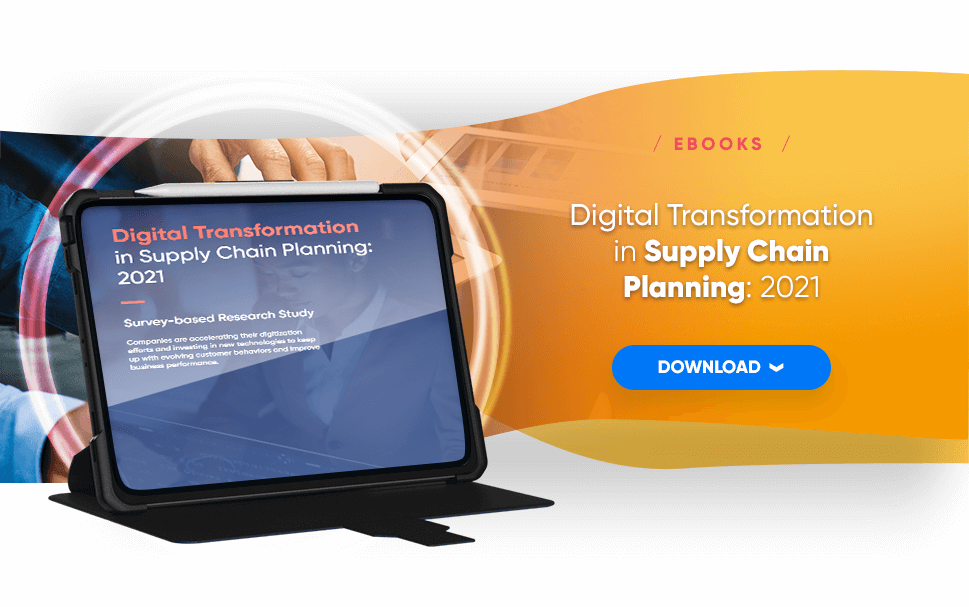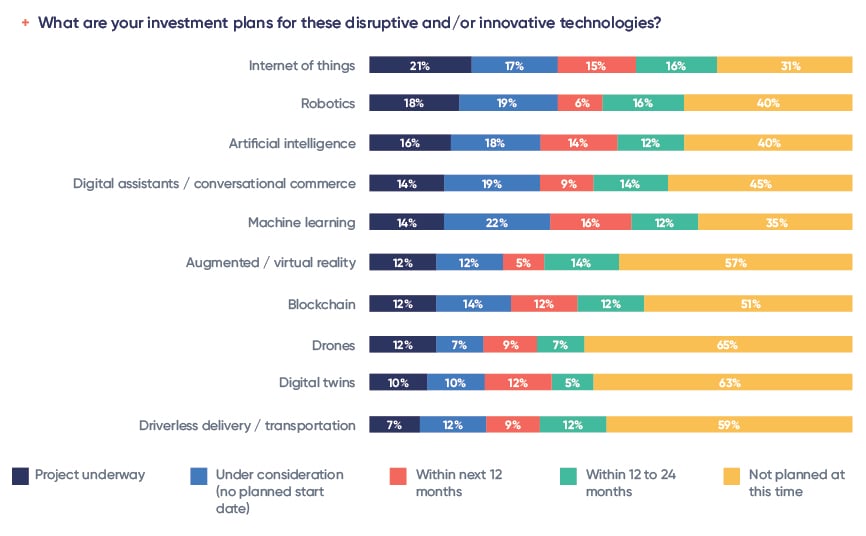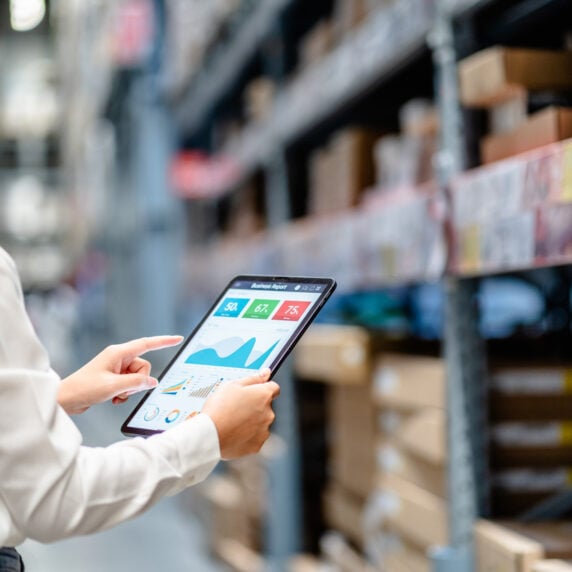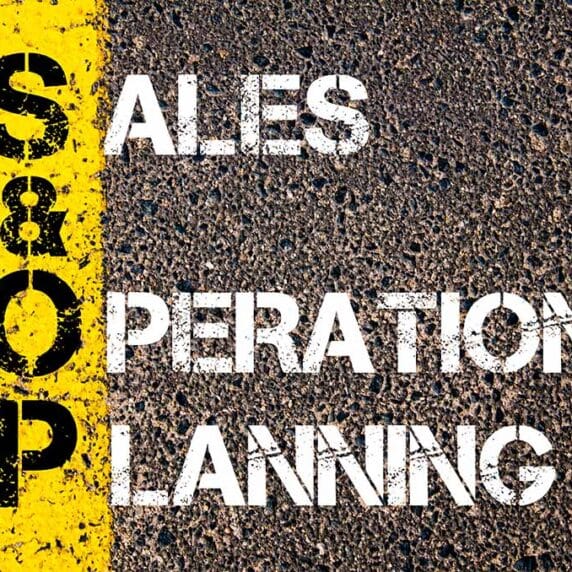Four Ways Blockchain Will Transform Supply Chain…and Beyond
Public ledgers dating to the Italian Renaissance may help us see the potential of today’s blockchain and supply chain technology to vastly improve data accessibility.
I chuckled today at the irony that one of the most “boring” things in the history of commerce–the ledger–constitutes the basic concept of one of the most transformative nextgen applications of technology–blockchain. Interestingly, the introduction of double entry accounting (ledger) coincides with the Italian Renaissance. The first banks in Genoa and Florence used that innovative ledger to manage the credits provided to institutions and craftsmen in a growing economy based on innovation and cross-border trading. These ledgers were critical enablers of the economic prosperity that facilitated the development of art and science.
The new blockchain ledger is challenging old ways of thinking–and will enable a new generation of game-changing solutions in supply chain and everyday life.
Before we take a look at some of my predictions for blockchain and supply chain, let’s review some of the basic characteristics of blockchain technology that make it an appealing antidote for today’s business complexity:
It’s “transparent”: Even for the best-run businesses, traceability of all of the goods throughout the supply chain is an enormous challenge, which can result in customer service and safety and cost issues. With blockchain-based supply chain management, sensors and RFID tags can pinpoint the origin and current location of goods.
It’s “democratic”: Blockchain is public ledger transaction data, publically-validated, shared and distributed. This provides an immutable record of the truth while also preserving the integrity and security of the data. Because data is a very valuable resource and of strategic importance to companies around the world, this means it should be managed above the interests of individual companies. Regulation may be necessary to ensure that these data resources can be made available to a wider community.
It’s efficient: With today’s non-integrated commerce systems, the same transaction is registered both on supplier and customer systems. Blockchain increases efficiency by eliminating this redundancy. Blockchain also provides a quick and convenient method for payments in a global supply chain. Some businesses are already using this method with cryptocurrency like Bitcoin instead of relying on EDI and banks. Furthermore, blockchain is beginning to give businesses the ability to more easily track and record data and transactions through the supply chain, which increases internal efficiency but also facilitates sharing information with trading partners.¹
It’s cost-saving: Because blockchain can speed up administrative processes in supply chains, it can eliminate intermediaries, reduce fraud risk and shrinkage, and slash errors (e.g. inventory) which all saves money.
Blockchain and its future derivatives will introduce a new standard and infrastructure to manage the new strategic supply chain resource: data. Today big, powerful companies like Amazon, Facebook and Google benefit disproportionately from data because there has been no practical way to share data’s value without compromising privacy and security. Blockchain fundamentally changes this game. Its ability to provide regulated transparency while protecting data’s intrinsic security, veracity and above all, value, democratizes data and allows its future regulation as a strategic resource. In the supply chain, blockchain significantly increases the utility and value of data, especially in complex, highly regulated industries that need to share data throughout complex stakeholder networks without compromising security. The ability for more planning stakeholders in the extended supply chain to view and access more complete high quality data makes optimized supply chain planning easier and faster.
Here’s a closer look at some of my predictions for “sweet spots” where blockchain will be applied for the greatest benefit to businesses and consumers:
1. Tracking provenance to meet regulatory compliance – By serving as a public ledger system that certifies the data in a supply chain’s production log, blockchain provides the required visibility needed to track raw material provenance. This is essential in complex, global industries like food, medicine and consumer goods, where the provenance of raw materials and ingredients are highly regulated and notoriously difficult and expensive to manage.
2. Improving public health, safety and services – Blockchain provides a way to democratize data in order to improve public health, safety and happiness. Today data’s value disproportionately benefits large organizations like Amazon, Facebook and Google. With Blockchain, powerful organizations like these will no longer be able to successfully argue with regulators that they can’t share data with health organisations, public service providers and even citizens for fear of compromising privacy and security.
3. Leveling the e-commerce playing field – Amazon has become such a powerful force in retailing, that many smaller players are either disadvantaged or put out of business entirely. This isn’t healthy for consumers, smaller retailers or even Amazon, which continually exists under the specter of being broken up. Through the adequate regulations, blockchain will provide a mechanism to help level the playing field by sharing more of its valuable data to smaller online and bricks and mortar retailers without compromising security and privacy.
4. Facilitating digital twins for planning and optimization – Our small networks are rapidly expanding to global end-to-end value chains, which is why it’s so important that the ledger is public and available to different participants in the extended supply chain–and even beyond. For companies like those we work with at ToolsGroup, more industries and business sharing transaction data makes it far easier to get the end-to-end supply chain visibility they seek in a digital twin model. The data blockchain provides helps fill in the most difficult part of the digital twin that is required for planning and optimization. Better supply chain planning also significantly reduces waste and makes supply chains more sustainable.
Along the same lines, blockchain technology could also allow AI networks to access big data for sensing demand and demand forecasting without needing to wait for a downstream trading partner or other entity in control.²
Can regulators keep pace with the speed of technology development?
Potential use cases for blockchain in supply chain are developing, but adoption is in early stages. A recent digital transformation study we conducted with Spinnaker showed that 12% of respondents had a supply chain-related blockchain project underway (see image below). According to Gartner, 80% of supply chain block chain initiatives will remain at a proof of concept (POC) or pilot stage through 2022. Not surprisingly, Gartner also maintains that “through 2023, 40% of all blockchain pilots across the supply chain will be developed as a complementary feature, or a mesh of, IoT and other advanced technology solutions.”³ Similarly to broader digital transformation initiatives, many businesses lack solid use cases and the internal buy-in and expertise to pilot blockchain projects.
Boston Consulting Group’s Stefan Gstettner stated blockchain’s challenges in this way: “It’s not enough to set up a technology platform [for blockchain]. It’s more about involving the stakeholders. The more stakeholders that need to be involved…the more difficult it becomes.
For instance, gain share mechanisms or who pays what, who has which advantage, how do we share data, maybe even across competitive environments. So the biggest obstacle in establishing blockchain has less to do with the technology. What makes it difficult to scale is that the number of parties that you need to involve is very high.”⁴
Another notable challenge of blockchain adoption is ecological: the immense computing power required to encrypt data will consume huge amounts of electrical power.
How to sum it all up? Blockchain is an incredibly powerful technology which has the potential for great benefit if we’re able to configure procedures and regulations that are compatible with the speed of technology development. Historically our governments have been slow to understand technology, particularly the importance of data. Consequently the speed of innovation has been hampered. I look forward to seeing blockchain’s potential unfold.
Resources:
- https://www.forbes.com/sites/bernardmarr/2018/03/23/how-blockchain-will-transform-the-supply-chain-and-logistics-industry/#50791f2f5fec
- https://hackernoon.com/how-blockchain-can-democratize-ai-development-6c49037100e4
- Gartner: Accelerate Your Blockchain Competency Across the Supply Chain. 26 September 2019 – ID G00382872
- https://knowledge.wharton.upenn.edu/article/blockchain-supply-chain-management








